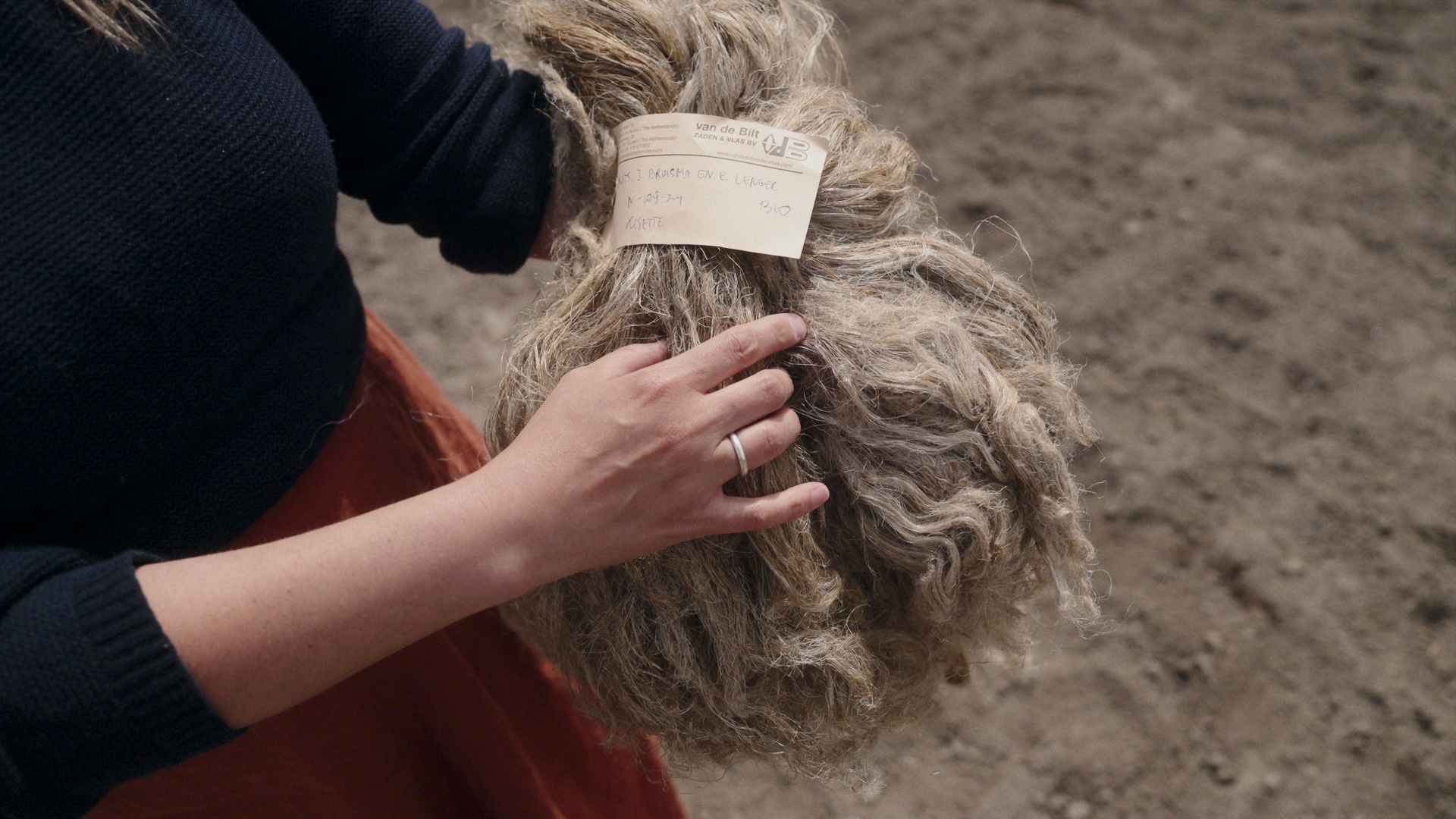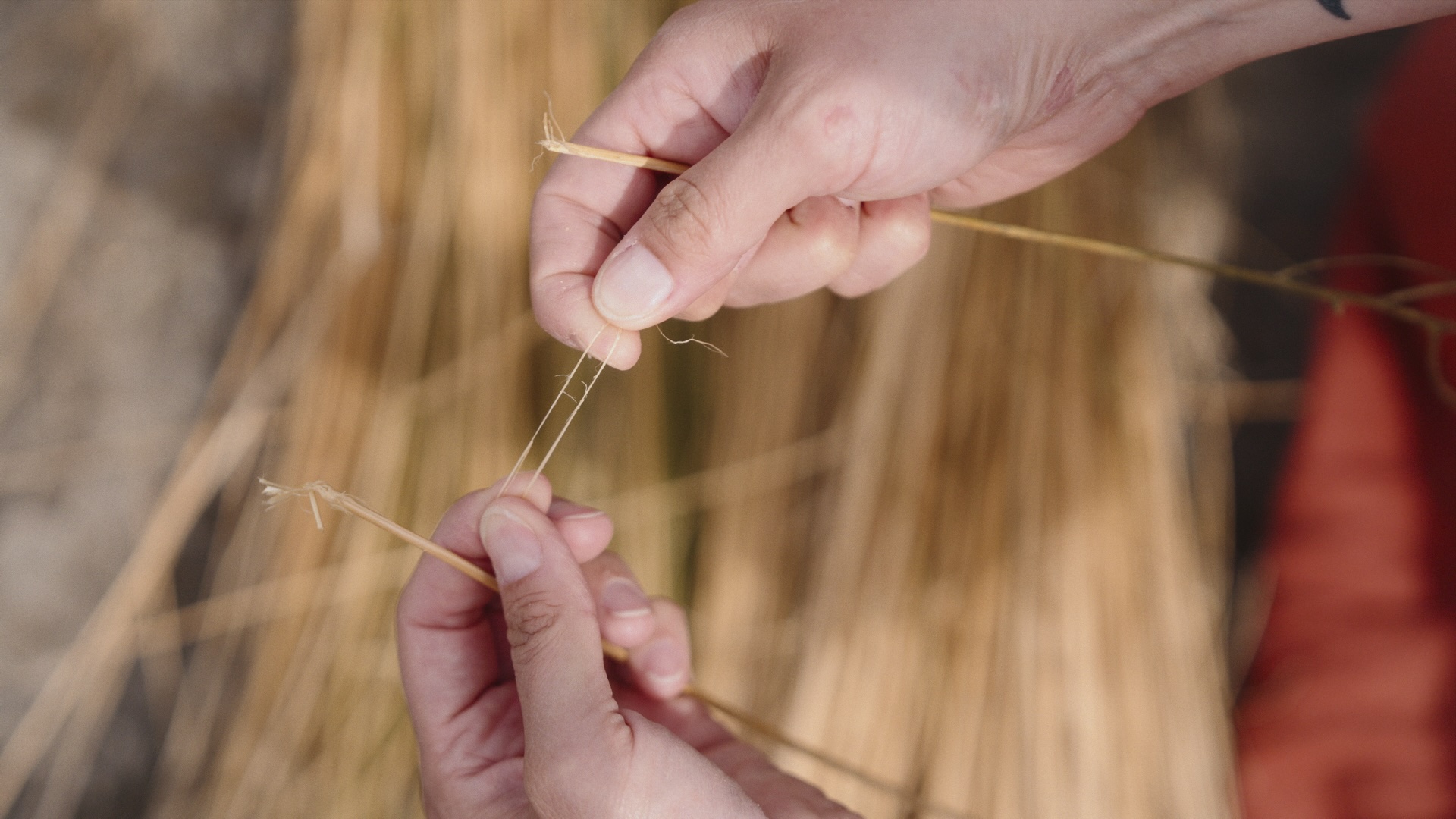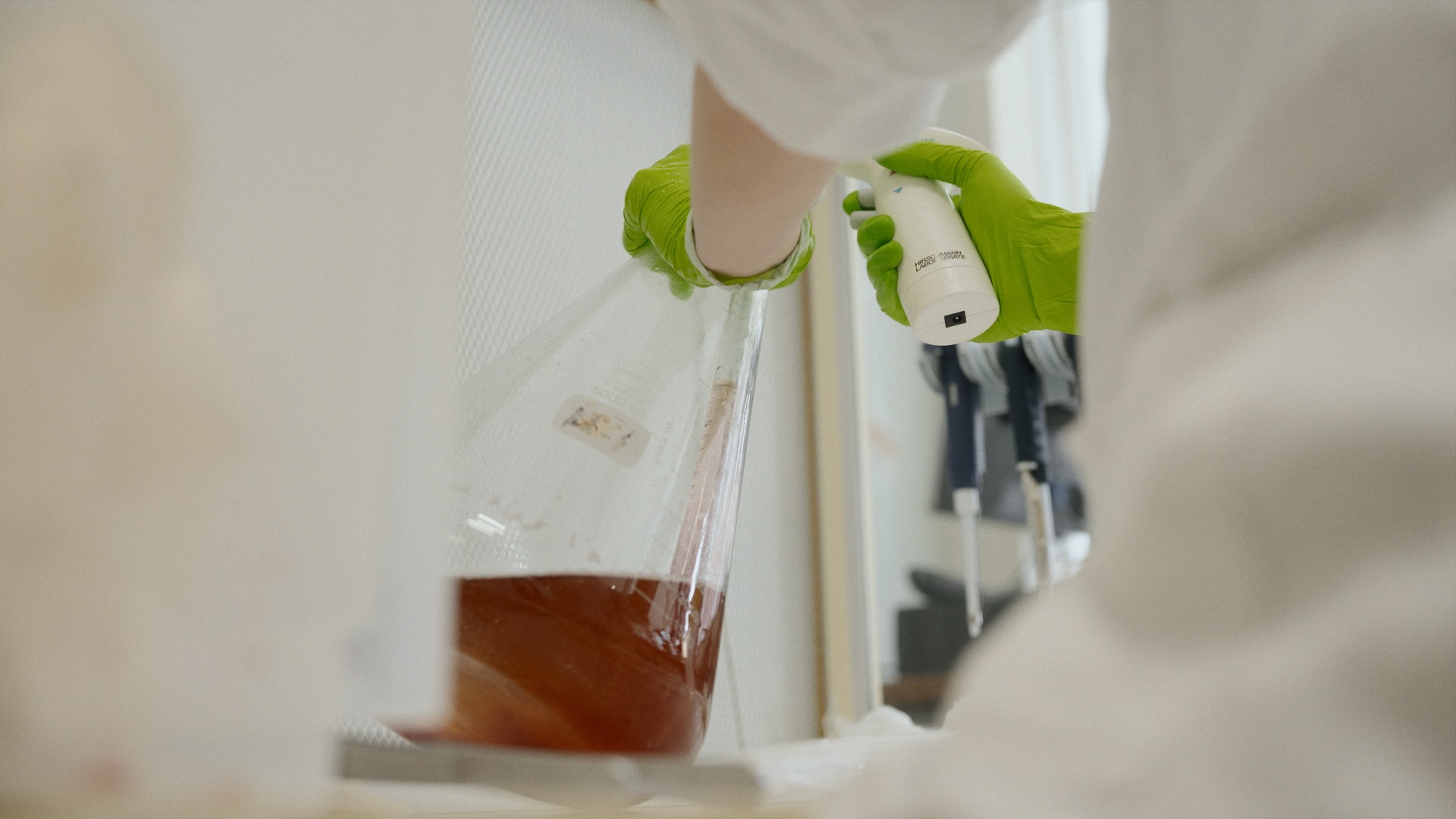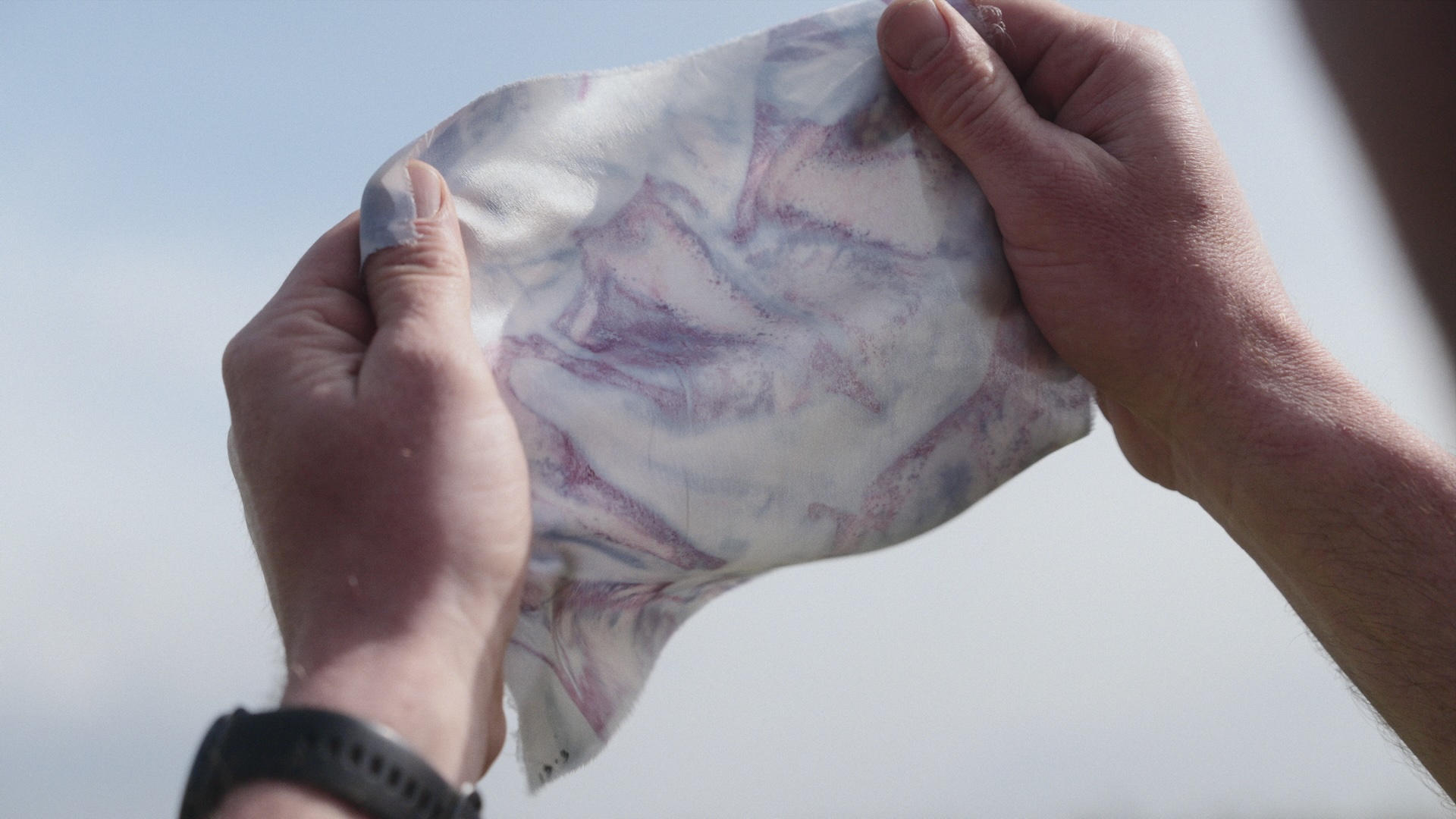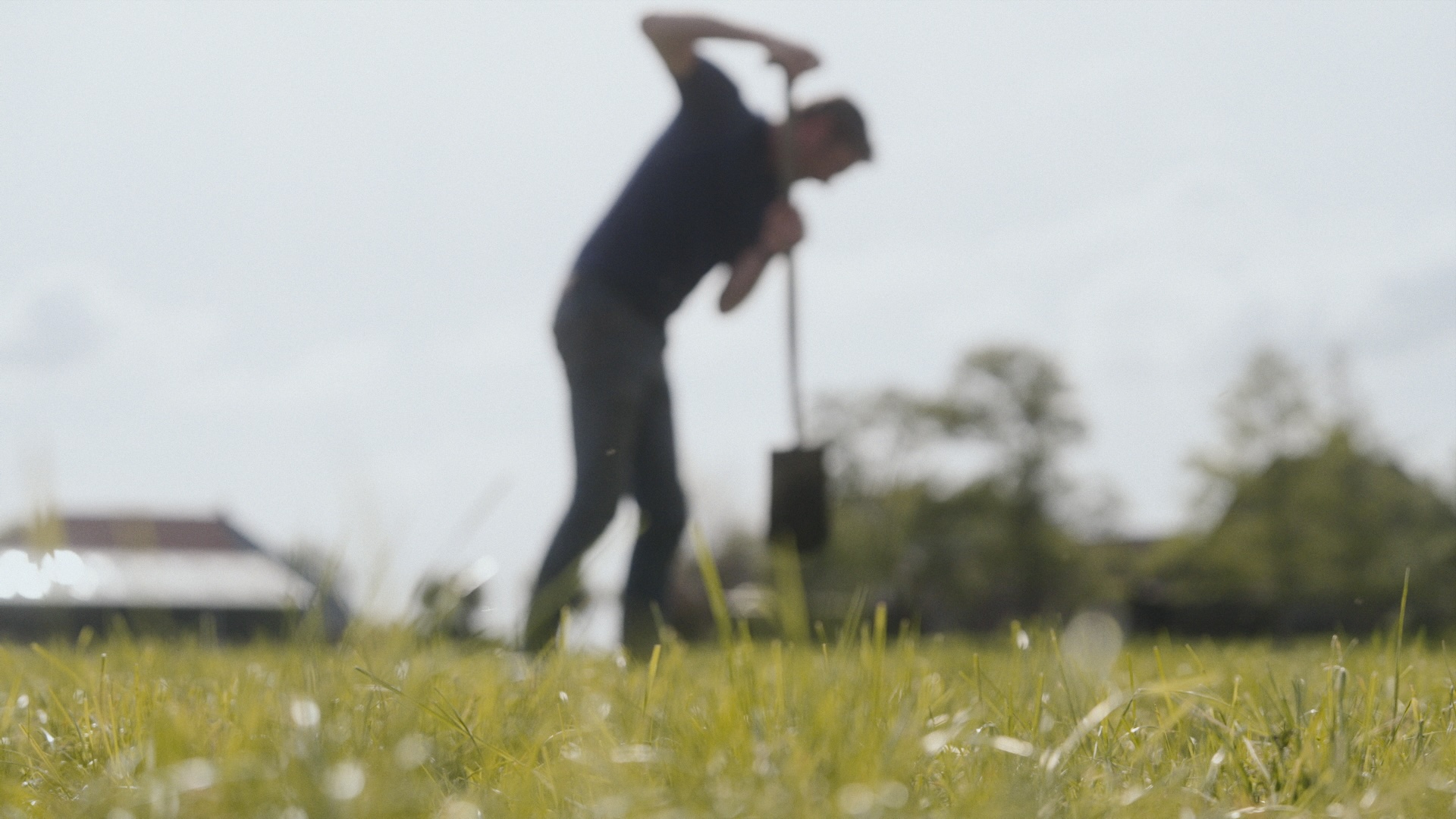With the project Prototyping Fit-to-Farm Models for Biofacturing: Friesland, Veenweide Atelier, in collaboration with Faber Futures, aims to translate soil life into a tangible and visual experience—one with the potential to impact culture, economy, and imagination.
Faber Futures, a creative research and development studio, explores how pigment-producing bacteria—naturally present in healthy soils and manure—can offer a sustainable alternative to conventional chemical dyeing processes. In 2023, the studio launched Normal Phenomena of Life (NPOL), a brand that merges material innovation with new models of consumption to catalyse deep systemic change.
In Prototyping Fit-to-Farm Models for Biofacturing, Faber Futures and Veenweide Atelier are co-developing a distributed model for on-farm bioproduction in the Frisian peat meadow region. This bioregional approach aims to establish a circular textile processing system, using pigment-producing microbes sourced from the peatland to transform agricultural residues and waste heat into resources. Through fermentation, these bacteria can dye and print on textiles—such as linen grown in Fryslân—using a water-saving, toxin-free process.
Veenweide Atelier connects Faber Futures’ innovative practice with local partners, including the Centre of Expertise in Biobased Economy (KCBBE) at Hanze University of Applied Sciences, the University of Groningen, House of Design (producers of Frisian linen and developers of the local linen chain), Agricycling (a composting cooperative of farmers), and the Boon family, organic dairy farmers in the peat meadow area.
At the Fries Museum, the project presents large textile banners printed with pigments produced by soil bacteria harvested from the lands of dairy farmer Kees Boon and Daniel Rozen (Leiden University). These prints were developed in collaboration with KCBBE. The proposed fermentation unit—co-designed with local partners—is adapted for seasonal use and harnesses the compost heat generated by the farm.
